In nuget.org, when you check any package there are 2 types of framework.

What is the difference between Compatible target framework and additional computed target framework?
In nuget.org, when you check any package there are 2 types of framework.

What is the difference between Compatible target framework and additional computed target framework?
A compatible target framework is directly derived from the Target Framework Monikers (TFMs) of a NuGet package. In your screenshot, the NuGet package targets net45 and netstandard2.0 - you will find these entries in the corresponding .csproj/.nuspec file.
The additional computed target frameworks are all kind of frameworks which are implicitly supported due API compatibility. For example every project targeting netstandard2.0 is compatible to netstandard2.1, as the APIs of .NET Standard 2.1 completely contain all APIs of .NET Standard 2.0.
The same is true for net45: an application/assembly targeting .NET Framework 4.5 will automatically be supported on .NET Framework 4.6, 4.7, etc.
Microsoft announced this here.